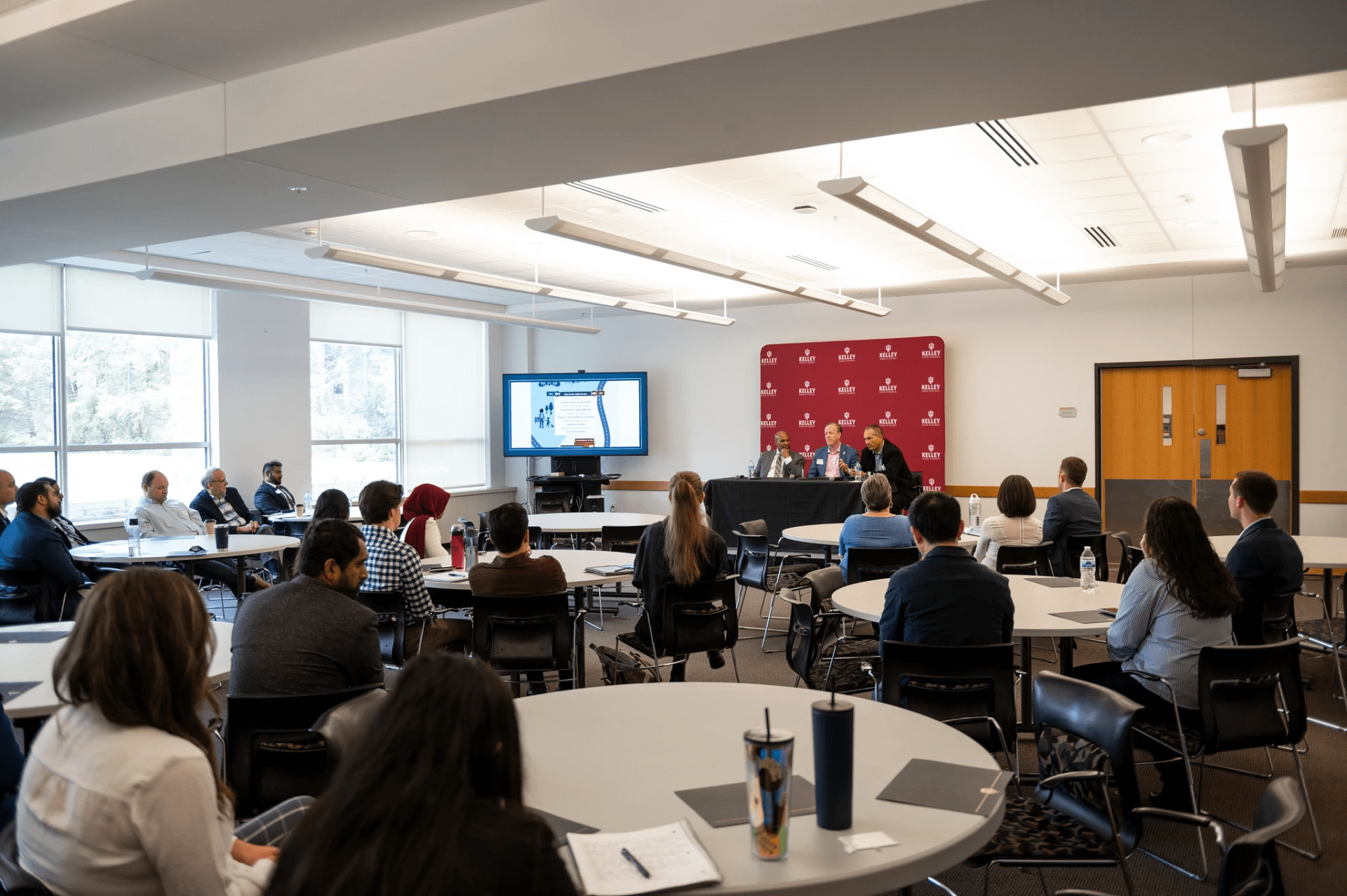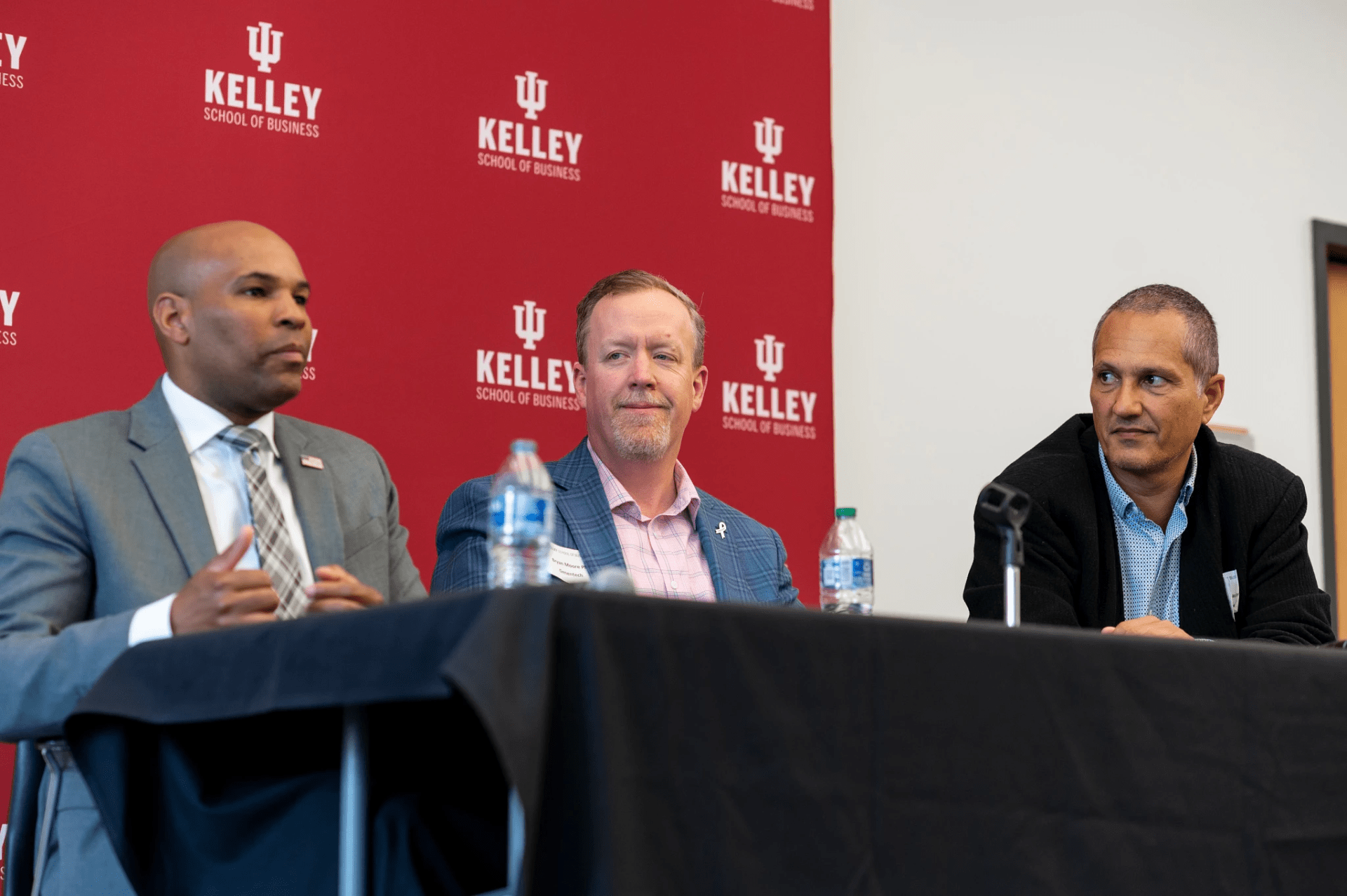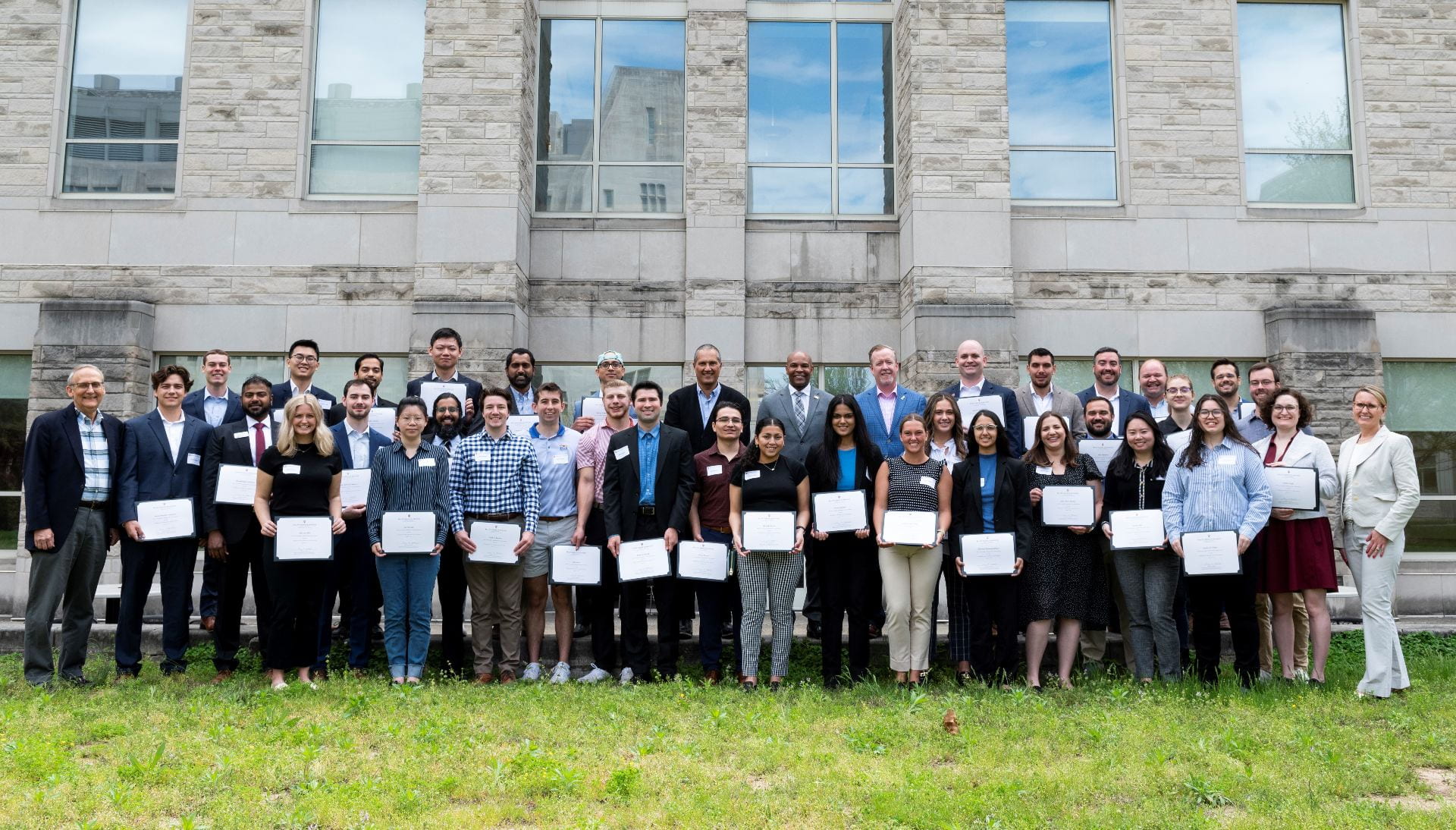
Students listen to Precision Medicine Panel- Dr. Adams, Bryan Moore and Michael Cobas Meyer.
By Mani Selvaraj, MBA Candidate, Class of 2023
The IU Life Sciences Day was started in the year 2006 and this event has been successfully conducted si
nce then to enlighten the healthcare related topics in which the students are interested. This year the event was held on the 14th of April and it showcased the latest innovations in precision medicine and how it is transforming the healthcare industry. Precision medicine takes information from an individual’s genes and uses it to prevent, diagnose and or treat diseases/conditions. The event had three distinguished speakers.
- Jerome Adams, MD. MPH– Presidential Fellow and the Executive Director of Purdue’s Health Equity Initiatives. He is also a Distinguished Professor of Practice in the departments of Pharmacy Practice and Public Health. Dr. Adams was the 20th Surgeon General of the United States.
- Michael Cobas Meyer, MD– Senior Vice President of Neuroscience Pain Early and Late Phase Development & LRL COVID-19 therapies at Eli Lilly.
- Bryan Moore– Medical Affairs Executive Director at Genentech, oversees the medical strategy across multiple specialties including oncology, ophthalmology, and neuroscience on behalf of patients in KS, MO, IL, and IN.

Dr. Adams speaking while Bryan Moore of Genentech and Michael Cobas Meyer of Eli Lilly look on.
The speakers highlighted that precision medicine invests a significant amount of money in healthcare and how innovations in therapies have the potential to make a significant impact, citing examples such as the cure for Hepatitis C and various types of cancer.
The presentations emphasized the importance of considering the environment’s relationship with bacteria in determining health outcomes and highlighted that it is more crucial than genetic code. The healthcare sector is the second most critical business globally, and Precision Health has the potential to optimize opportunities in this area. In the field of oncology, researchers have made significant progress in understanding different types of cancer tumours, changes in DNA and RNA, and targeted therapies. For instance, drugs are now available for over 250,000 lung cancer patients. The panellists discussed the importance of leadership in bringing about changes in the healthcare sector, highlighting the issues of equality vs. equity in patient treatment. They emphasized the need for diversity in clinical trials, as access to genomic sequencing is a challenge for patients who cannot afford it.
The speakers also emphasized the importance of personalizing treatment by looking at genetic information, and the genetic molecular profile utilizes a variety of therapies to treat patients. Trust was identified as a vital factor for clinical research, and motivation was highlighted as key to bringing about change.
There were also discussions about the challenges, opportunities in data sharing and collaboration across institutions and countries to help advance precision medicine. The students had interesting questions about the impact of precision medicine on drug development and clinical trial design, ethical considerations (including the role of AI) need to be taken into account while implementing precision medicine.
After the panel discussion, George Telthorst, Director of Center for the Business of Life Sciences and Life Sciences Academy Plus congratulated the students who were awarded and recognized for successful completion of Life Sciences Academy.
The students were highly benefitted with the session and the event came to an end with a group photo and networking luncheon.

2023 Certificate in the Business of Life Sciences undergraduate & graduate honorees along with Dr. Jerome Adams (20th U.S. Surgeon General), Bryan Moore (Medical Affairs Executive Director at Genentech), Michael Cobas Meyer (Senior Vice President of Neuroscience Pain Early and Late Phase Development & LRL COVID-19 therapies at Eli Lilly) at center and CBLS staff- George Telthorst & Kelli Conder.
Leave a Reply